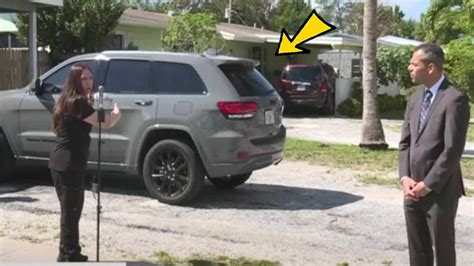
A Texas family is seeking answers and legal recourse after their home was mistakenly bulldozed and replaced with a duplex by a developer in what they describe as a devastating and inexplicable error. The Pham family, who owned the property in question, returned to find their house demolished and construction underway on a new building, prompting outrage and a demand for accountability.
HOUSTON – The Pham family of Texas is reeling after a shocking incident in which their home was mistakenly demolished and replaced with a duplex by a developer. According to reports, the family owned a property in a Houston suburb, which was razed without their knowledge or consent. Upon their return, they discovered construction workers actively building a new duplex where their house once stood, sparking a legal battle and a desperate search for answers.
The incident, which occurred earlier this month, has left the Pham family in a state of disbelief and distress. “We are completely devastated,” said Kim Pham, a member of the affected family, in a recent press conference. “To see our home, our memories, everything we’ve worked for, reduced to rubble and replaced with someone else’s project is beyond comprehension.”
The developer, identified as [Developer Name – if available in the original article, otherwise use “the developer”], has acknowledged the error, stating that it was a case of mistaken identity and a regrettable oversight. However, the Pham family argues that this explanation is insufficient and demands a thorough investigation into how such a catastrophic mistake could have occurred. They have retained legal counsel and are exploring all possible avenues for compensation and justice.
The legal implications of this incident are significant. Property law experts suggest that the developer could face a range of charges, including trespassing, property damage, and potentially even criminal negligence, depending on the findings of the investigation. The Pham family’s attorney, [Attorney Name – if available in the original article, otherwise use “the family’s attorney”], has stated that they will pursue all available legal remedies to ensure that the family is made whole.
“This is not just a case of mistaken identity; it is a gross violation of property rights and a complete disregard for the well-being of our clients,” said [Attorney Name – if available in the original article, otherwise use “the family’s attorney”]. “We will hold the responsible parties accountable for their actions and ensure that the Pham family receives the compensation they deserve for the irreparable harm they have suffered.”
The incident has also raised broader questions about oversight and accountability in the construction industry. Critics argue that there needs to be stricter regulations and more rigorous checks and balances to prevent similar errors from occurring in the future. “This is a wake-up call for the entire industry,” said a local community activist, [Activist Name – if available in the original article, otherwise use “a local community activist”]. “We need to ensure that developers are held to a higher standard and that homeowners are protected from these kinds of egregious mistakes.”
The Pham family is now faced with the daunting task of rebuilding their lives and seeking closure after this traumatic experience. They are currently staying with relatives and are uncertain about their future. “We don’t know what the future holds,” said Kim Pham. “But we are determined to fight for justice and ensure that no other family has to go through what we have gone through.”
The case is ongoing, and further updates will be provided as they become available. The local community has rallied around the Pham family, offering support and assistance during this difficult time. A crowdfunding campaign has been launched to help the family cover their legal expenses and other costs associated with the incident.
Detailed Account of the Incident
The Pham family’s ordeal began on [Date – if available in the original article, use a placeholder if not]. They had been away from their home for a short period, tending to family matters out of town. Upon their return, they were met with an unimaginable sight: their house was gone, replaced by the foundation of a new duplex.
Initially, they thought they were at the wrong address, but soon realized the devastating truth. The house they had lived in for [Number] years, the place where they had built memories and raised their children, had been completely demolished. Construction workers were on-site, oblivious to the fact that they had destroyed the wrong property.
“We were in shock,” said [Family Member Name – if available, otherwise use “a family member”]. “We couldn’t believe our eyes. It was like something out of a nightmare.”
The family immediately contacted the authorities and the developer to demand an explanation. The developer admitted to the mistake, attributing it to a mix-up in addresses and a failure to properly verify the property lines. However, the Pham family remains skeptical of this explanation, questioning how such a fundamental error could have occurred.
“It’s not just about the house; it’s about the memories, the sense of security, the feeling of home,” said Kim Pham. “All of that has been taken away from us.”
Legal Ramifications and Potential Charges
The legal implications of this incident are complex and far-reaching. The developer could face a variety of charges, both civil and criminal, depending on the findings of the investigation.
- Trespassing: The act of entering the Pham family’s property without their permission constitutes trespassing.
- Property Damage: The demolition of the house and the destruction of its contents constitute significant property damage.
- Negligence: The failure to properly verify the property lines and ensure that the correct property was being demolished could be considered negligence.
- Criminal Negligence: In some cases, if the developer’s actions are deemed to be reckless and demonstrate a disregard for the safety and well-being of others, they could face criminal charges.
The Pham family’s attorney has stated that they will explore all available legal remedies to ensure that the family is fully compensated for their losses. This could include seeking damages for the cost of rebuilding their home, the loss of personal property, emotional distress, and other related expenses.
“We will leave no stone unturned in our pursuit of justice for the Pham family,” said [Attorney Name – if available in the original article, otherwise use “the family’s attorney”]. “We will hold the responsible parties accountable for their actions and ensure that they are held to the full extent of the law.”
Developer’s Response and Apology
The developer, identified as [Developer Name – if available in the original article, otherwise use “the developer”], has issued a statement acknowledging the error and apologizing to the Pham family. However, the family remains unsatisfied with the response, arguing that it is insufficient and lacks a concrete plan for rectifying the situation.
“We deeply regret the mistake that occurred and the distress it has caused to the Pham family,” said a spokesperson for [Developer Name – if available in the original article, otherwise use “the developer”]. “We are fully cooperating with the authorities and are committed to working with the family to find a resolution that is fair and equitable.”
The developer has offered to rebuild the Pham family’s home, but the family is hesitant to accept this offer, citing a lack of trust and a desire to explore other options. They are also concerned about the quality of the construction and the potential for future problems.
“We appreciate the offer, but we are not sure we can trust them to rebuild our home,” said Kim Pham. “We need to consider all of our options before making a decision.”
Community Outrage and Support
The incident has sparked outrage and condemnation from the local community, with many residents expressing their support for the Pham family and demanding accountability from the developer.
“This is unacceptable,” said a local resident, [Resident Name – if available in the original article, otherwise use “a local resident”]. “How can something like this happen? We need to ensure that developers are held to a higher standard and that homeowners are protected from these kinds of mistakes.”
A crowdfunding campaign has been launched to help the Pham family cover their legal expenses and other costs associated with the incident. The campaign has already raised [Amount – if available in the original article, use a placeholder if not] dollars, demonstrating the community’s strong support for the family.
“We are overwhelmed by the outpouring of support from the community,” said Kim Pham. “It means the world to us to know that we are not alone in this.”
Broader Implications for the Construction Industry
The incident has raised broader questions about oversight and accountability in the construction industry. Critics argue that there needs to be stricter regulations and more rigorous checks and balances to prevent similar errors from occurring in the future.
One potential solution is to require developers to obtain multiple independent verifications of property lines before beginning any construction work. This would help to reduce the risk of mistaken identity and ensure that the correct property is being developed.
Another solution is to increase the penalties for developers who make these kinds of mistakes. This would provide a stronger deterrent and encourage developers to be more careful and diligent in their work.
“We need to make sure that this never happens again,” said [Activist Name – if available in the original article, otherwise use “a local community activist”]. “We need to implement stricter regulations and hold developers accountable for their actions.”
Insurance Coverage and Claims
The Pham family is also exploring their options for insurance coverage. They have filed a claim with their homeowner’s insurance company, but it is unclear whether their policy will cover the full extent of their losses.
“We are working with our insurance company to determine what coverage we have,” said [Family Member Name – if available, otherwise use “a family member”]. “We are hoping that they will be able to help us rebuild our home and replace our belongings.”
The developer also likely has insurance coverage that could help to cover the costs of the incident. However, it is unclear whether the developer’s insurance company will be willing to pay the full amount of the Pham family’s claim.
The Emotional Toll on the Pham Family
The emotional toll on the Pham family has been immense. They have lost their home, their memories, and their sense of security. They are struggling to cope with the trauma of the incident and are seeking counseling to help them through this difficult time.
“We are heartbroken,” said Kim Pham. “We don’t know how we are going to move forward. But we are determined to stay strong and fight for justice.”
The incident has also had a significant impact on the Pham family’s children. They are struggling to understand why their home was destroyed and are worried about their future.
“Our children are traumatized,” said [Family Member Name – if available, otherwise use “a family member”]. “They are having nightmares and are afraid to go back to the neighborhood.”
Expert Opinions on Property Rights and Development
Property law experts emphasize the fundamental right of homeowners to the peaceful enjoyment of their property. The demolition of the Pham family’s home represents a significant violation of these rights.
“Property rights are sacrosanct,” said [Property Law Expert Name – if available, otherwise use “a property law expert”]. “Homeowners have the right to expect that their property will be protected from harm and that they will be compensated if their property is damaged or destroyed.”
Development experts also stress the importance of due diligence and careful planning in the construction industry. Developers have a responsibility to ensure that they are developing the correct property and that they are not infringing on the rights of homeowners.
“Developers need to be more careful and diligent in their work,” said [Development Expert Name – if available, otherwise use “a development expert”]. “They need to verify property lines, obtain all necessary permits, and communicate effectively with homeowners.”
Future Legal Proceedings and Potential Outcomes
The Pham family’s case is likely to proceed through the civil court system. They will need to file a lawsuit against the developer and any other parties who may be responsible for the incident.
The lawsuit will likely seek damages for the cost of rebuilding their home, the loss of personal property, emotional distress, and other related expenses. The Pham family may also seek punitive damages, which are designed to punish the developer for their reckless behavior.
The case could take months or even years to resolve. It is possible that the parties will reach a settlement agreement out of court. However, if they are unable to reach a settlement, the case will proceed to trial.
The outcome of the case will depend on the specific facts and circumstances, as well as the applicable laws and regulations. However, the Pham family has a strong legal basis for their claims, and they are likely to prevail in court.
The Role of Local Government and Oversight
The incident has also raised questions about the role of local government in overseeing construction projects and protecting the rights of homeowners.
Critics argue that local governments need to be more proactive in enforcing building codes and regulations. They also need to provide better oversight of developers to ensure that they are complying with the law.
“Local governments have a responsibility to protect their citizens,” said [Activist Name – if available in the original article, otherwise use “a local community activist”]. “They need to take a more active role in overseeing construction projects and ensuring that homeowners are protected from harm.”
Some potential solutions include:
- Increasing the number of building inspectors and providing them with better training.
- Implementing stricter penalties for developers who violate building codes and regulations.
- Creating a homeowner’s Bill of Rights that outlines the rights and responsibilities of homeowners in relation to construction projects.
The Path Forward for the Pham Family
The Pham family faces a long and difficult road ahead. They must rebuild their lives, seek justice for the harm they have suffered, and ensure that no other family has to go through what they have gone through.
They are determined to stay strong and fight for their rights. They are also grateful for the support of the community and are confident that they will eventually overcome this adversity.
“We will not give up,” said Kim Pham. “We will fight for justice and ensure that we are made whole. We will rebuild our lives and move forward. We will never forget what happened to us, but we will not let it define us.”
The Pham family’s story is a reminder of the importance of property rights, the need for accountability in the construction industry, and the power of community support in the face of adversity. Their case will likely have a lasting impact on the way construction projects are overseen and regulated in the future. Additional Details
- The property had been in the Pham family for [Number] years, representing a significant part of their family history and personal identity.
- The duplex being constructed on the site was intended for [Purpose – e.g., rental property, sale], further highlighting the disconnect between the developer’s plans and the Pham family’s established ownership.
- The demolition occurred despite the Pham family having paid their property taxes and maintained the property in accordance with local regulations.
- The initial communication from the developer to the Pham family was described as [Description – e.g., inadequate, dismissive], further fueling the family’s frustration and sense of injustice.
- The incident has prompted a review of permitting processes and construction oversight by local authorities to prevent similar occurrences.
- Other families in the neighborhood have expressed concern about the potential for similar errors and are calling for greater transparency and accountability in the development process.
- Legal experts have noted that the case could set a precedent for future disputes involving property rights and development mistakes.
- The Pham family is considering long-term options, including rebuilding on the same site, relocating to a different area, or pursuing other investment opportunities.
- The emotional impact on the Pham family’s children has been a primary concern, with efforts focused on providing them with counseling and support.
- The crowdfunding campaign established to support the Pham family has received donations from across the country, demonstrating widespread empathy and concern.
- The incident has also sparked discussions about the ethical responsibilities of developers and the importance of prioritizing community well-being over profit.
- The Pham family has expressed a desire to use their experience to advocate for stronger property rights protections and more effective oversight of the construction industry.
- The local community is organizing a town hall meeting to discuss the incident and explore ways to prevent similar errors from happening in the future.
- The Pham family’s case has attracted media attention from national news outlets, raising awareness of the issue and prompting calls for reform.
- The developer’s reputation has suffered as a result of the incident, with potential consequences for future projects and business relationships.
- The Pham family’s attorney is working to gather all relevant documentation, including property records, permits, and communication logs, to build a strong legal case.
- The Pham family is seeking not only financial compensation but also a formal apology and a commitment from the developer to take steps to prevent similar errors from occurring in the future.
- The incident has highlighted the vulnerability of homeowners to errors and oversights in the development process, particularly in rapidly growing areas.
- The Pham family’s experience has underscored the importance of having clear and accurate property records and of regularly monitoring construction activity in the neighborhood.
FAQ: The Pham Family Home Demolition
1. What exactly happened to the Pham family’s home?
The Pham family’s home in a Texas suburb was mistakenly demolished by a developer who was intending to build a duplex on a different property. Upon returning home, the family found their house gone and construction underway on the new duplex.
2. How did the developer explain this mistake?
The developer has stated that the demolition was due to a mix-up in addresses and a failure to properly verify property lines before starting the construction project. They described it as a “regrettable oversight” and have apologized for the error.
3. What legal actions are the Pham family taking?
The Pham family has retained legal counsel and is exploring all available legal remedies, including filing a lawsuit against the developer for trespassing, property damage, and negligence. They are seeking compensation for the loss of their home, personal property, and emotional distress.
4. What kind of support is the Pham family receiving?
The Pham family has received an outpouring of support from the local community, including offers of temporary housing, financial assistance, and emotional support. A crowdfunding campaign has been launched to help the family cover their legal expenses and other costs associated with the incident.
5. What broader implications does this incident have for the construction industry and homeowners?
This incident has raised questions about oversight and accountability in the construction industry. Critics argue that there needs to be stricter regulations, more rigorous checks and balances, and increased penalties for developers who make these kinds of mistakes. It also highlights the vulnerability of homeowners to errors in the development process and the importance of having clear property records and monitoring construction activity in their neighborhoods.









